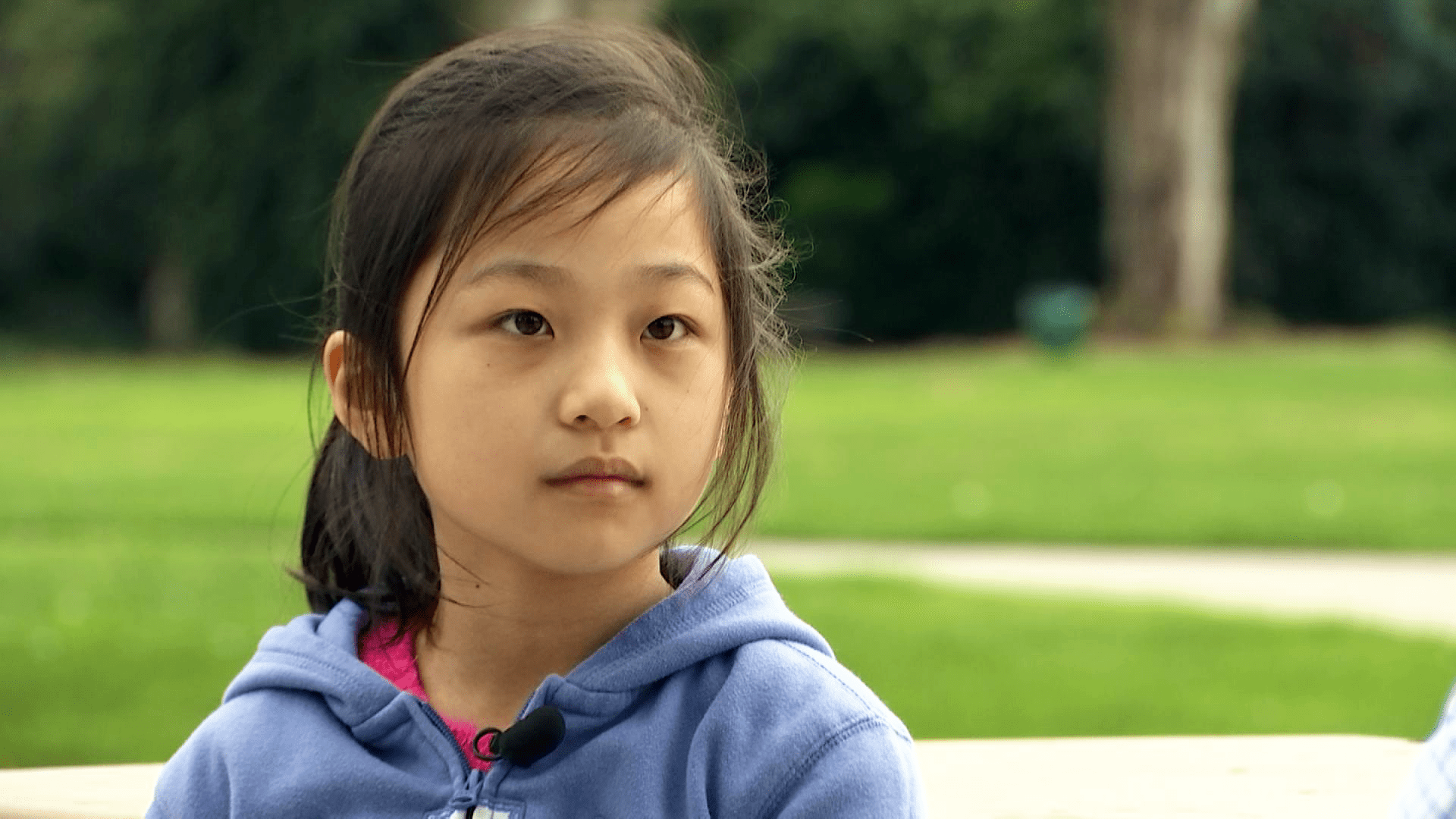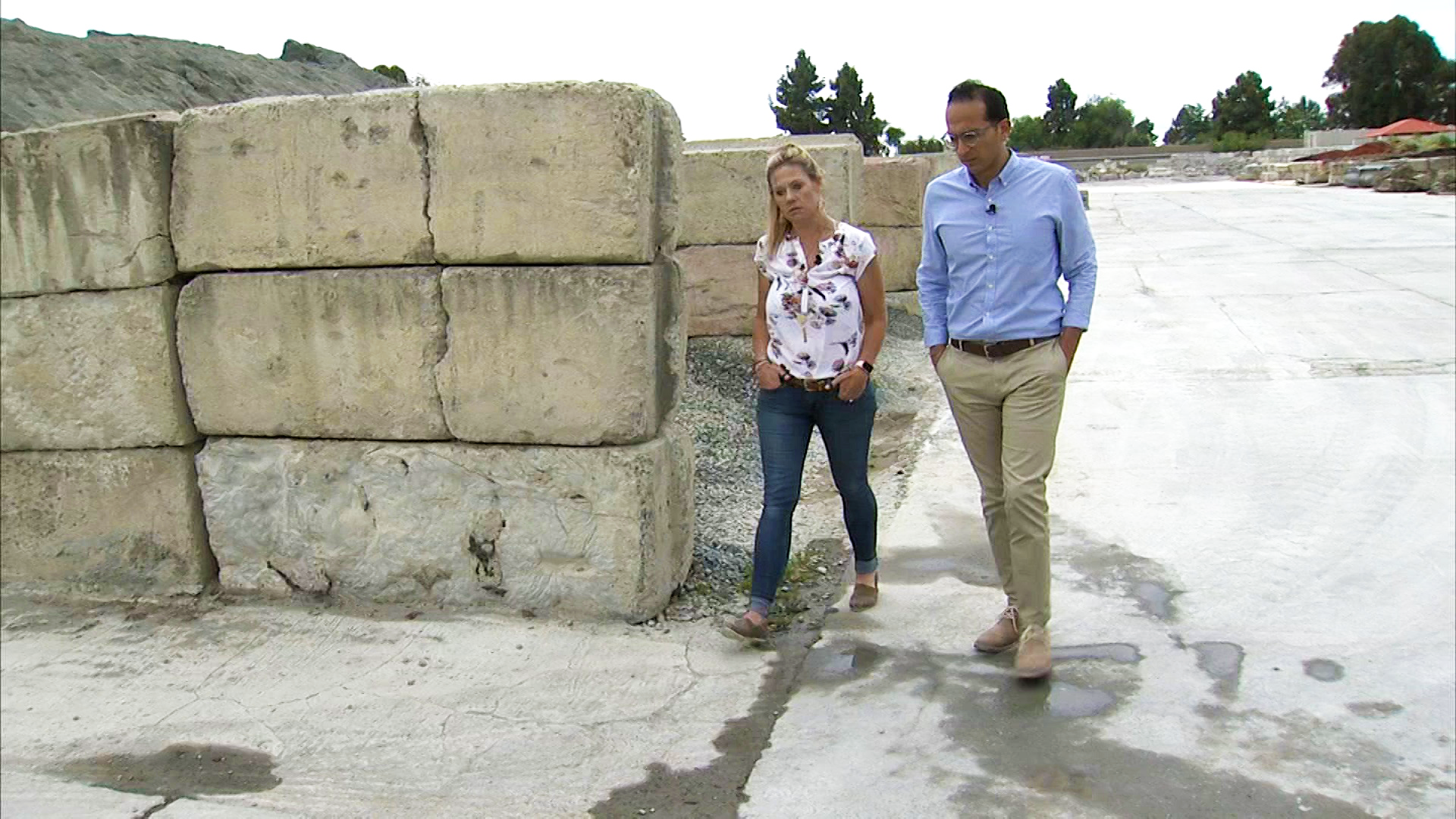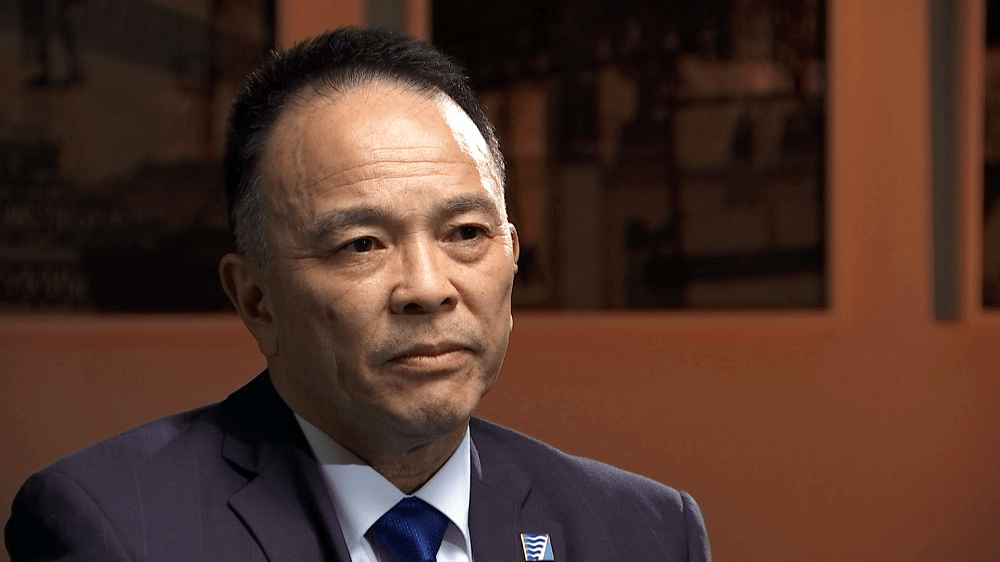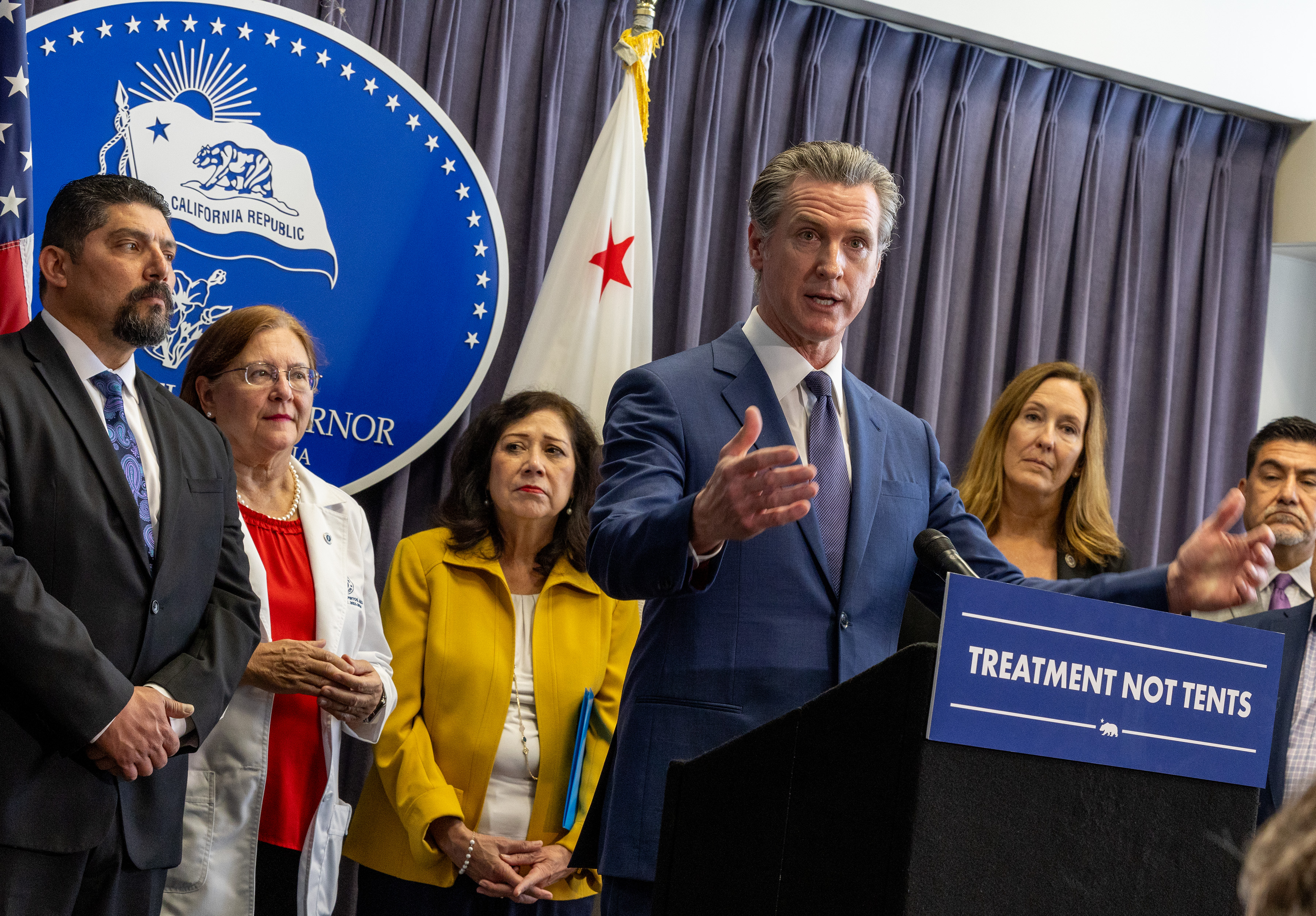The location of a new school in Silicon Valley is attracting heavy criticism from parents and air quality experts, who fear its close proximity to a concrete plant may pose serious and long-term health risks to students.
An NBC Bay Area Investigation reveals the approval process to build Stratford School, a private elementary and middle school, right next to the Tri City Rock concrete plant was the result of an unfortunate chain of events that included inaccurate permit applications, poor communication between government agencies, and other bureaucratic blunders.

'A Giant Dust Cloud Came'
Get a weekly recap of the latest San Francisco Bay Area housing news. Sign up for NBC Bay Area’s Housing Deconstructed newsletter.
“I was playing at recess, and then a giant dust cloud came,” said Charlotte Tsui, an 8 year-old-student at Stratford. “The first time, I had no clue what it was … some of the kids start breathing really fast and start whimpering.”
Tsui said plumes of dust occasionally blow onto the school playground from the adjacent concrete plant.
“It makes me nervous,” said 5-year-old Glen Wong, who feels responsible for protecting his classmates. “I run to everybody and then I warn them.”
Local
The process of making concrete can send microscopic chemicals into the air, which can cause respiratory problems and heart disease, according to the federal government.
Eric Meng, 11, had to go to the doctor when some of the dust lodged in his eye.
“I became worried that it may become infected, and maybe I could have the potential to become blind,” Meng said, recalling doctors saying the dust scratched his eye. But the fifth grader said he healed without any long-term effects after a course of antibiotics.
The National Institutes of Health and several other federal agencies, including OSHA, CDC and the EPA have reported on the health hazards of dust from concrete manufacturing facilities. Ultra-fine particles in the dust can lodge into the lungs, ultimately traveling to the heart. As a result, exposure can cause respiratory problems and even lead to cardiac arrest.
'Dangerous Situation'
“Wow. It’s like right against it,” said Dr. Anthony Wexler, head of the air quality research center at UC Davis, as he looked at photos of the concrete plant abutting the school. “With it right up against next to it there … it's much more dangerous situation. The concentrations are going to be higher.”
While chronic exposure to concrete dust has been shown to be dangerous and even fatal for adults, Wexler said children are especially vulnerable.
“The lungs of children are growing,” he said. And there's been a number of studies showing that children who were exposed to air pollution when they were young, their lungs did not grow properly and they do not ... fully function when they reach adulthood.”
Wexler notes that even if kids and teachers are inside the school, they could be exposed to the potentially toxic dust since the school’s air circulation system may suck in air from the concrete facility.
“That outside air is going to have dust from this facility in it,” he said.
More than 30 Parents Share Health Concerns with NBC Bay Area
Many parents said they initially didn’t realize their children’s new school would be next to the concrete plant. While the school was being built, the plant looked as if it was part of the construction site, parents have argued. It wasn’t until the multimillion-dollar school opened in August when parents realized the plant was next door.
“I could smell the diesel so much I had to close my nose,” said Shankar Suntararaju, a father of a second grader at Stratford. “Students are playing [at the playground] day in and day out.”
A group of 33 parents recently sat down with NBC Bay Area to share their health concerns.
“It’s really shocking to us,” said Bowen Liu, who transferred her two children to another school.
“We thought the school would stand with the parents and fight the pollution, but what they’re trying to do … is persuade everyone there’s no problem. Stay there and study and let it go. That’s really shocking to the parents.”
Stratford: Air Quality Meets State Standards on 'Majority of School Days'
The school, which declined repeated interview requests with NBC Bay Area, defended its location alongside the concrete plant.
“Stratford School prioritizes the safety and well-being of its students and staff,” school founder Sherry Adams said in a statement. “We remain committed to ongoing communications with members of our school community regarding this matter, as well as to actively working with our neighbors and local regulatory districts.”
Adams said the school paid for air quality testing over a 20-week period, which showed the results were in line with state standards for a “majority of school days.”
Citing parents’ concerns, the school also allowed students to opt out of recess. In letters emailed to parents, the school asked families whether their children are “allowed to play in the playground.”
Parents Pull Kids Out of Stratford
While many parents have already pulled their children out of the school, others remain reluctant because of the difficulty in finding open spots elsewhere, as well as the close ties their children share with teachers and fellow classmates.
“I tried to move my kid to another Stratford campus, and he started crying,” said Suntararaju. “He loves his friends.”
Some parents, however, remain skeptical of the school’s air quality studies since, they argue, the results suggest the air quality along the fence line, between the school and the plant, is somehow cleaner than the ambient air surrounding the area.
“it’s just scientifically impossible,” said Sean Wang, a father of two children at Stratford. “[The school] needs to deliver an updated report with an updated baseline.”
Wang said parents began seeking clarification from the school in March about what they describe as serious discrepancies in the data. Wang, however, said parents have yet to receive any answers from school officials.
Concrete Plant Owner 'Surprised' at School’s Decision to Build Next Door
While the Stratford School opened its doors less than a year ago, Tri City Rock has maintained the concrete plant at its location, next door to the school, since 1987.
“I was surprised that they would choose this location,” said Stefany Doukas, owner and CEO of Tri City Rock. The family-operated concrete plant rests along Osgood Road in Fremont.
Doukas said when she first heard of the school’s intentions to build next door, she expressed her own concerns to a top official at Stratford.
“He was very matter of fact and said, 'We know what we’re moving next to,'" Doukas said.
The chain of blunders that led to the school’s construction begins with inaccurate permit application forms submitted by Tri City Rock. Doukas admits she and her family mistakenly underreported the plant’s production.

'It was Never Brought to Our Attention'
“I feel like we just reported to the best of our knowledge and, unfortunately, that was not necessarily accurate,” she said.
In filling out renewal forms for her company’s annual permit with the air quality regulators, Doukas noted that Tri City produced 268.8 tons of concrete in 2018. The plant’s actual production level, however, was hundreds of times larger – more than 98,000 tons.
“We thought we were submitting the accurate data,” she said. “It was never brought to our attention that we were reporting incorrectly.”
The Bay Area Air Quality Management District (BAAQMD), which regulates air pollution in the nine-county Bay Area, used Tri City Rock’s inaccurate emissions data to calculate a health risk assessment score for the area, which BAAQMD then posted on its website.
“The website is supposed to be for informational purposes, not for planning purposes,” said Wayne Kino, deputy air pollution control officer at BAAQMD.
While the information was made available to the public, Kino said data posted on his agency’s website should never be used to make official decisions relating to planning and zoning, adding that its standard practice for government agencies to phone his office to obtain more precise figures.
Incorrect Health Assesment Used to Approve School Site
The NBC Bay Area Investigative Unit, however, has learned that incorrect calculation was used as part of the decision-making process to allow the school to be built alongside the Tri City Rock concrete plant.
In hopes of scoring a permit with the city of Fremont to locate its school alongside the plant, Stratford School hired a contractor to analyze air quality in the area. That contractor, Illingworth & Rodkin, used the incorrect figure from the BAAQMD website as part of the school’s permit application. Illingworth & Rodkin did not contact air quality regulators to verify the data, according to BAAQMD, and did not respond to repeated requests for comment from NBC Bay Area.
Fremont’s Planning Department, which was ultimately in charge of approving the project, did not contact BAAQMD either. The agency ultimately greenlit the plan to locate the school alongside the concrete plant, even though the school’s permit application included a miscalculated health assessment, which underestimated the safety risk caused by air pollution emitting from the plant.
“The city had no reason to believe that the data relied upon in the Illingworth & Rodkin assessment was incorrect,” said Kristie Wheeler, Fremont’s zoning administrator, who declined to be interviewed on camera but provided a statement to NBC Bay Area.

'We All Have Fault Here'
“These kinds of things are avoidable with better communication," said Kino. "We all have fault here."
When asked if it is dangerous to make such information readily available to the public on his agency’s website even though the information is inaccurate, Kino said, "We're looking at that … and we're evaluating that at this point.”
The agency is also considering including disclaimers on its website but has yet to update the incorrect health assessment score that is still listed online for the area surrounding Tri City Rock.
Kino said he was unsure when the figure would be corrected but added his office recently completed a more precise assessment of health risks at the plant and determined emissions fall under allowable limits.
That said, Kino still believes the school should not have been located alongside the concrete plant.
“There's some common sense factors that you have to apply to these things,” he said. “The school is located in an industrial area between railroad tracks. Emission sources, truck traffic – just that alone says in your mind that the school shouldn't be there.”
Stratford School Built in Industrial Area
Doukas describes the misreporting as a "clerical error." Her actions, however, ignited a chain of events that ultimately led to the controversial decision to approve the school's location, which parents now blame for threatening their children's safety. Families have even held protests along the concrete plant.
"I don't believe there's any merit to the health risk," Doukas said. "It's been a long few months since the school opened up in what feels like constant harassment."
Neither the concrete plant nor the school has any plans to relocate.
“Closing the doors is not an option,” Doukas said. “Relocating is not an option. We've got customers and relationships in the city of Fremont that depend and rely on us. This business is everything to me,” Doukas said tearfully.
The concrete plant has yet to face any penalty for its misreporting; however, the plant was cited for producing about 20 percent more concrete last year than what its permit allowed. Tri City Rock has since requested an increase to its concrete production limit – from 80,000 tons to 120,000 tons.
In the coming months, BAAQMD is expected to weigh in on the permit request and what changes, if any, the concrete plant will have to make to reduce its air pollution. The agency has the power to shut down the plant and issue up to $10,000 per day in fines. The agency has done neither in this case. The penalty phase can take years, according to the agency.
“It’s lives. It's other people's lives,” said Charlotte Tsui, now in the third grade. “I don't want anyone getting hurt at school."
Watch Our Entire Investigative Series
- Part 1: Parents Fear Kids at Risk From Dangerous Dust at Silicon Valley School
- Part 2: Air Quality Official Slams School's Decision to Build Near Concrete Plant
- Part 3: Superintendent Calls for Law to Protect Private School Kids from Toxic Air
- Part 4: CA Seeks to Close Loophole Allowing Schools to be Built Near Toxic Sites



